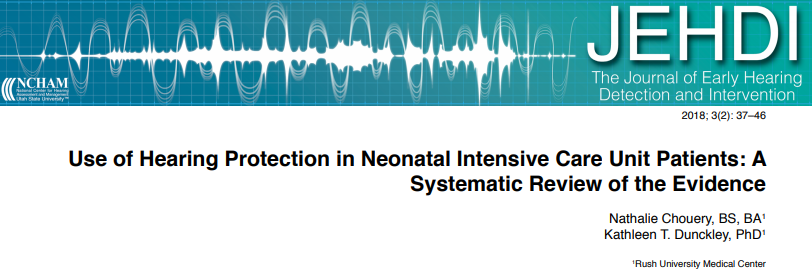Neonatal intensive care unit (NICU) settings present neonates with many environmental hazards, including exposure to dangerous sound intensity levels. Noise levels in NICUs worldwide overwhelmingly exceed the recommendations for safe exposure by the American Academy of Pediatrics. AAP recommend minimizing noxious environmental stimuli for all neonates and frequently monitoring vital signs to detect stress. These sequelae of toxic stress in a newborn are all the more serious in NICU populations who are already at risk for developmental complications.
A systematic review of the literature was undertaken to answer if earmuffs improve physiologic stability, behavioural response, and sleep behaviour, which are markers of stress response in NICU patients. This paper analyses seven studies that examined the efficacy of using neonatal earmuffs to reduce infant stress in the NICU support this as a viable intervention. None of the studies using only earmuffs reported detrimental effects on the infants. Neonates had improved physiologic stability sleep, and behavioural responses. Earmuffs are a minimally invasive, affordable, and effective option for complying with recommended noise guidelines (Committee on Environmental Health, 1997). Moreover, earmuff use by NICU patients should be considered as part of the routine evidence-based practices when implementing development centred care. This endorsement is in line with recommendations by the American Academy of Pediatrics to evaluate and reduce the stress experienced by neonates using validated measures and appropriate environmental and nonpharmacological (behavioural) interventions.
An individualized option to reduce infant exposure to noise is the use of personal hearing protection such as earmuffs. The most widely used HPD in routine infant care and research are the MiniMuffs® (Natus Medical Incorporated), supra-aural noise attenuators designed specifically for premature infants.
Read the Full Text of this article: READ FULL ARTICLE
To learn more about Minimuffs click HERE


